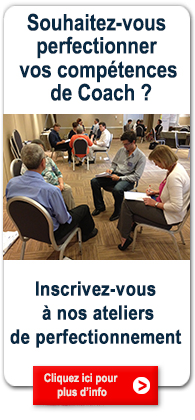Such defensive structures can be in both individuals and groups and as such work as formidable obstacles against learning. It is not only that we do not learn, it is that in such conditions, we cannot learn. There are structure that prevent learning. It operates like an antidote to learning.
Now have you ever had those kind of thoughts about another person, a client, a group (an organization or company) or even about yourself?
“What’s wrong with him, can’t he ever learn?” ”I’ve told her a dozen times and she still doesn’t seem to get it!” ”The group just keeps having the same argument over and over and we don’t ever seem to learn or move on. What’s going on?”
If you have ever experienced a situation like that, there is a strong likelihood that an anti-learning program (frame) was at work at a meta-level operating outside-of-conscious awareness. If the behaviors, languaging, and responses keep happening and it seems like learning is never achieved, it would probably be a good guess that there is a governing frame that is actually forbidding it.
Now if this is the case, how could a person or a group get themselves into that kind of quandry? Surely no individual or group would set something like that up on purpose! Woudl they? Surely, that kind of a thing would have to come about inadvertently, accidently, and as an unexpected consequence of something else. But what?
This is where Argyris’ description of it as a “defensive structure” is so useful. This suggests that the structure is there defending us against something. It must be a defense against some threat or danger. Given that, what would be some threat or danger to learning? Would it not be that what we would learn would be a perceived threat to our sense of self whether to ourselves or in the presence of others? So let’s make a list. It could be a threat or danger to :
- Being right: What if we learn that we are wrong about something?
- Being honest: What if we learn that we have been dishonest about something? That we lied, or betrayed a value?
- Being moral: What if we learn that we have done someone wrong? Violated them or hurt them in some way?
- Being ineffective: What if we learn that our hard work and extra hours amounted to nothing, was ineffective, didn’t achieve our objectives, etc.?
- Being less than we thought: What if we learn that our management was just mediocre, our leadership was less than inspiring, that the role that we cared so much about has been a disappointment?
In these ways and many more, what if we discover something which we do not want to discover about ourselves? Can we face the truth? Can we embrace a negative evaluation about ourselves or something we did or cared about? Ah, yes, it is here at these kinds of things that we most often find ourselves weak and vulnerable and so we build up defenses against them. We do not want to learn about such. Such things are “hard” truths- things are hard to hear, hard to see, and hard to say.
And, besides, we want to be positive, don’t we? We want to be an optimist, to look on the bright side of things, to be hopeful, and encouraging, and we don’t want to be a gloom-and-doom type of person, so it is in this way that we inadvertently and not-intentionally build up assumptive frames that work outside of our awareness to keep these hard truths away from us. And it is these defensive structures that operate as anti-learning programs.
Now does any of this have any relevance to coaching? You bet it does! This now gives you another distinction to make regarding your clients. It gives you more questions to ask:
- What do you want to learn? What learning do you need to make to be more successful?
- What do you need to un-learn? What old learnings are now in the way?
- What do you fear learning? What anti-learning tendencies or frames might be holding you back from learning?
Picking up on the double loop of learning from Bateson and the MRI group, Argyris talked about superficial learning. This occurs when a person learns too fast. Well, at least it seems too fast. Something happens and a person quickly jumps to a conclusion, makes a new learning, and off he goes. Yet if there is no double-loop of learning, that is, no stepping back to examine the frames you used in your first learning, no asking, “What framed led me to draw the conclusions that I did?” ”How did I interpret things in that way?” ”How accurate or useful is that?” then the first learnings may be too shallow, too superficial, and unuseful in the long run.
As a coach you facilitate learning and as a Meta-Coach you facilitate people learning to learn. And now you have some more distinctions that you can use, do you not?






